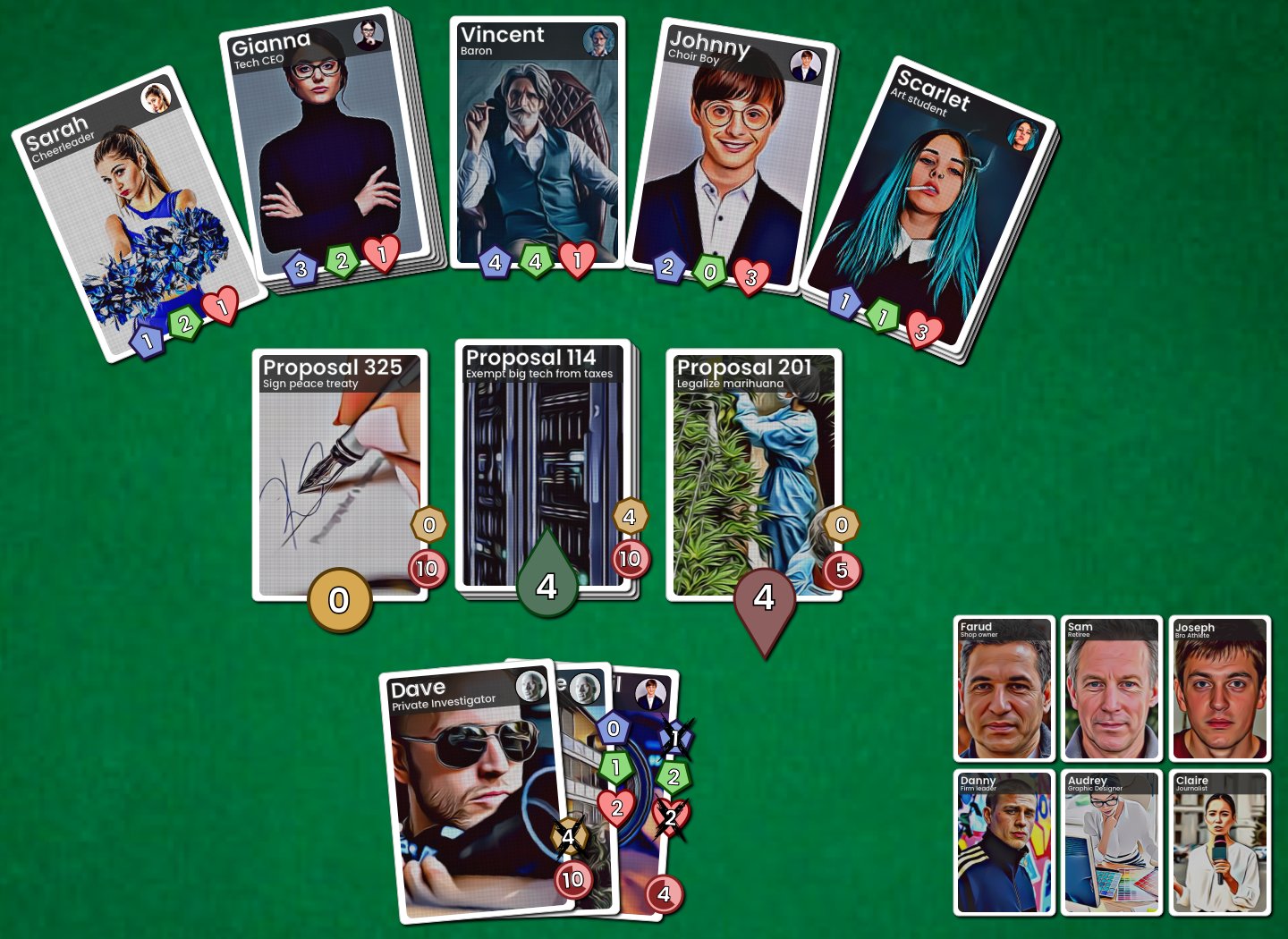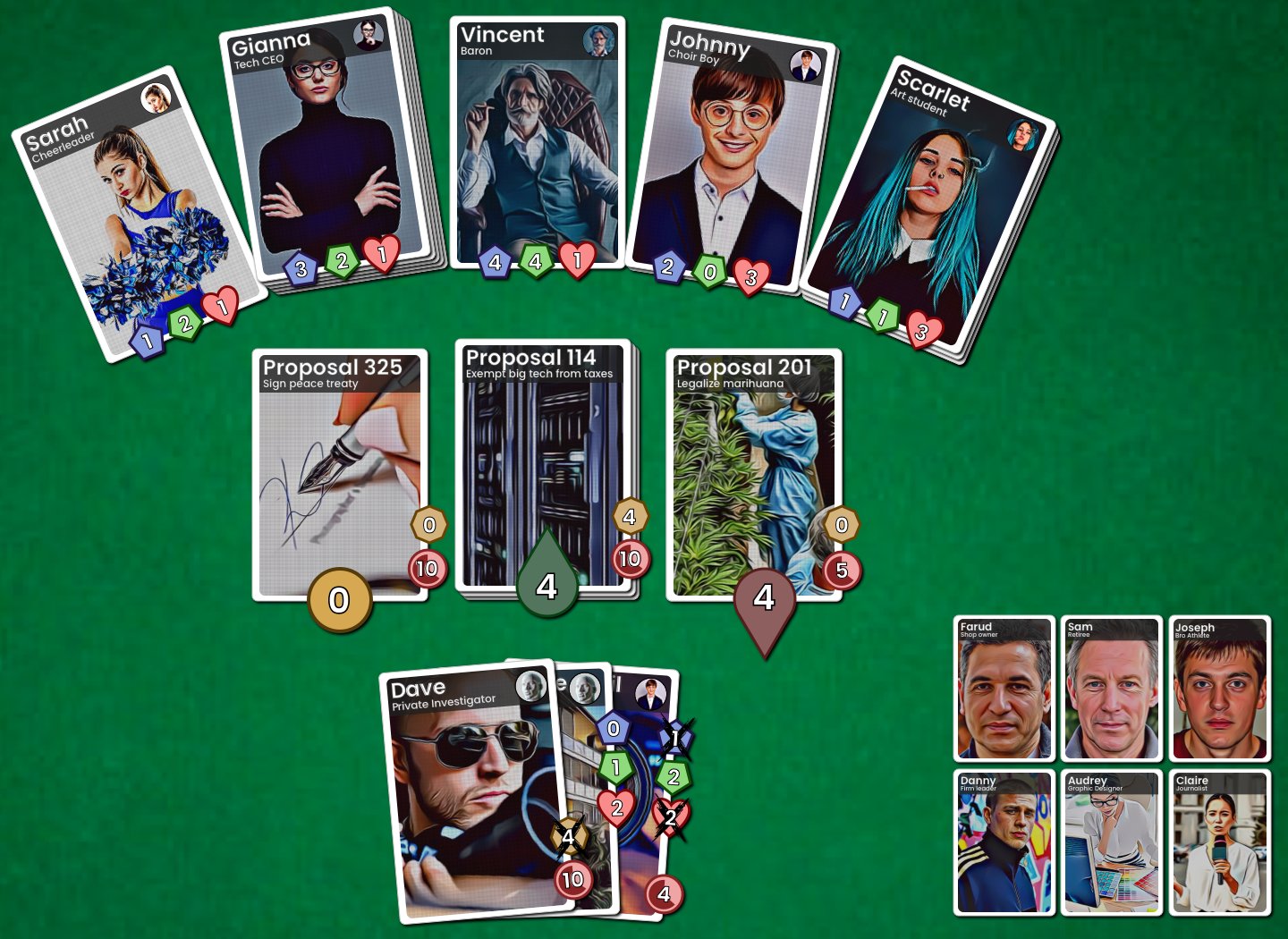So one thing every virtually every designer podcast, blog or video will tell you is to "kill your darlings". They also tell you it's a lesson most people learn the hard way. It turns out I'm like most people. Let me walk you through the first one in this post, about the idea I had to make a game about being a lobbyist.
Summary

The setting of the game is the player trying to lobby the members of a council to get certain proposals passed or denied. The motions all have a time limit, and when it's up that is when the council will pas its vote. It's up to the player to have their assets set up in a way that the council will pass the vote they want.
Every asset is in effect a buff (or debuff) and can be played on a councillor or proposal, starting a stack of (de)buffs. The problem is that every buff is only active for a limited number of turns. This results in the player having to juggle what buffs will be in play when a vote happens.
Councillors have three stats: Power, corruption and favor.
- Power: is the amount of votes they have
- Corruption: allows for using "less ethical" assets like bribes
- Favor: a currency that can be spent on having the councillor granting requests
Prototype
Remember that it's a prototype, so it is minimally implemented. Expect things the be rough. It really is a direct look into how the sausage is made.
- You pass time by clicking on the red icon in the top left corner
- You can click on a councillor to talk with them. Only the most left councillor has some dialog in this prototype.
- You can click on a card in the bottom left to select it, then on a Councillor to apply it. Only councillors that light up are compatible with the card.
Take aways
The main reason I abandoned this design, is that I wish to make a game that features Interactive Fiction. This game design would force me to write for a lot of different situations, as the councillors are politicians, and are kind of expected to interact with each other off camera. I may revisit this with more of a board game angle, where the story is told via event cards, and the game mechanics.
I've learned to spent less time on a polished prototype. Although I've learned a lot about UI and icon design. I've noticed that I've taken these skills with me, to other prototypes I make. I now find myself able to quickly whip up a decent UI for testing.
I really like Angular as a prototyping tool for turn-based games. It gives me the freedom of coding the way I like, and css/html is a really good combo for games that are heavily UI driven. The added bonus of it being easy to publish to almost any platform also really makes me consider this as a primary framework for building my games.
Outro
I still really like the idea, but I'm going to have to park it for a while. If you've felt inspired by this idea, feel free to use it. Do drop me a line to let me know, I would be super interested what other people came up with.

